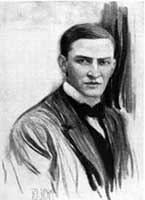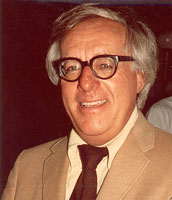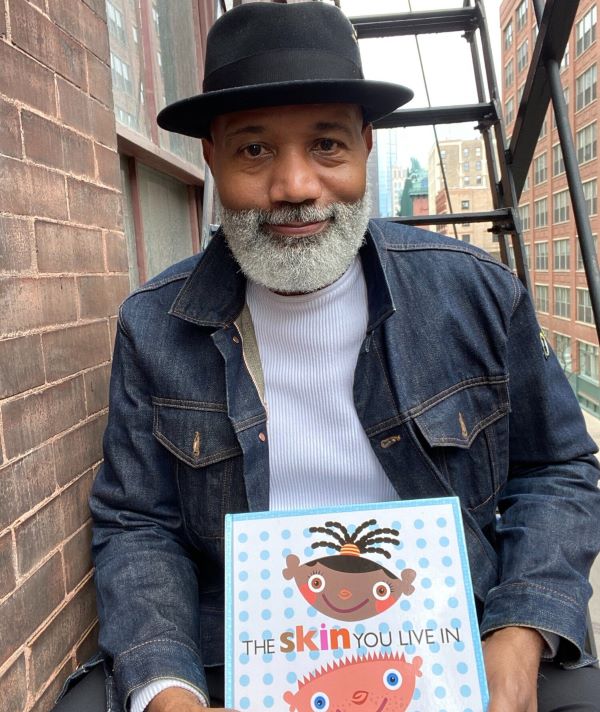
Michael Tyler
Born: 1960 in Chicago, Illinois
Pen Name: None Connection to Illinois: Tyler was born in Chicago and grew up in the south side neighborhood of Chatham. His educational lineage is St. Joachim (elementary), to Willibrord Catholic High to Loyola University of Chicago. He remains a resident of Chicago, . Biography: Since 2003, Tyler’s been putting pen to paper, authoring Water for the Soul: A Father’s Hope for His Son, a collection of life lessons, and Sow the Seeds: A Composition in Verse, a poetry journal. But in 2005, when one day his son came home from elementary school and shared that he’d been called a racially disparaging name by a classmate on the playground, Tyler began thinking differently about his writing. He knew he wanted to talk with his son about what happened, so he looked to children’s books to help him approach this challenging conversation in a way his 5-year-old could grasp. So, Tyler started reading… MichaelTyler3.jpg After two weeks and 347 children’s books later, Tyler concluded that the book he needed to help explain to his son race and racism didn’t yet exist, so instead he’d need to write it. That’s how Tyler’s first children’s book, The Skin You Live In, was born. As an African American man and father to biracial children, Tyler is acutely aware of the world’s “-isms.” To combat racism, sexism and more, he writes affirming, empowering stories to engender self-worth in kids. Through verse and rhyme, Tyler transforms meaty topics and difficult concepts, including race, acceptance and equity, into language kids can both understand and enjoy. He is passionate about arming parents and educators with the resources and tools (including social and emotional learning curriculum around two of his titles) they need to start tough dialogues with their kids and students. When he’s not writing, hosting a virtual reading hour or participating in programming around his books, Tyler gets satisfaction through cooking for others. One of his favorite ways to give and receive love is watching someone’s eyes light up after taking their first bite of his butter cake.
Awards:
- The Skin You Live In Mom's Choice Award, Founder's Choice, 2005; Harold Blake Walker Award; Illinois Reads Book Selection, Illinois Reading Council, 2018
- The Smallest Spot of a Dot New York Times Bestseller
Instagram: https://www.instagram.com/mtylerwrites
Twitter: https://twitter.com/MTylerTSYLI
Web: https://medium.com/@michaeltyler
Selected Titles
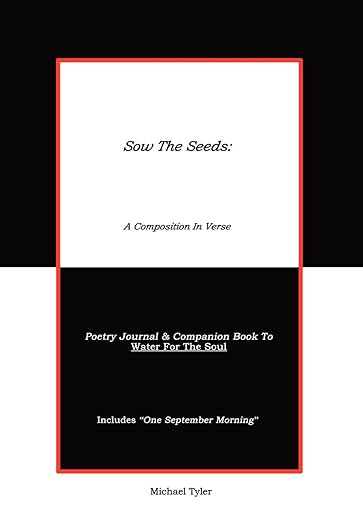 |
Sow The Seeds: A Composition In Verse: Poetry Journal ISBN: 1403360464 OCLC: 70339976 1stBooks Library, Bloomington, IN : ©2003. |
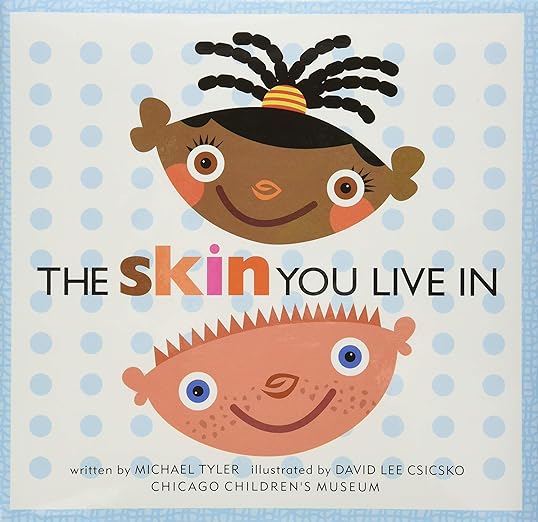 |
The Skin You Live In ISBN: 0975958003 OCLC: Chicago Children's Museum 2005 With the ease and simplicity of a nursery rhyme, this lively story delivers an important message of social acceptance to young readers. Themes associated with child development and social harmony, such as friendship, acceptance, self-esteem, and diversity are promoted in simple and straightforward prose. Vivid illustrations of children's activities for all cultures, such as swimming in the ocean, hugging, catching butterflies, and eating birthday cake are also provided. This delightful picture book offers a wonderful venue through which parents and teachers can discuss important social concepts with their children. |
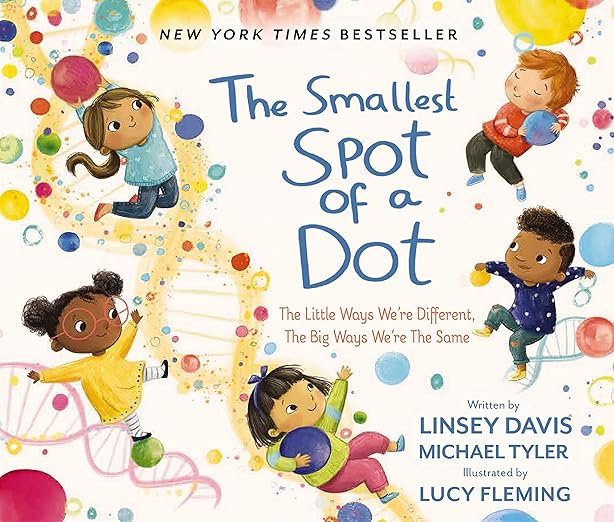 |
The Smallest Spot of a Dot: The Little Ways We’re Different, The Big Ways We’re the Same ISBN: 0310748801 OCLC: Zonderkidz 2023 A New York Times bestseller! Using child-friendly language, this playful picture book explains how genetics make each person unique and celebrates how we are more alike than different and are all part of the human race. In The Smallest Spot of a Dot: The Little Ways We’re Different, The Big Ways We’re the Same, Linsey Davis, bestselling children’s author, Emmy-winning correspondent, and host for ABC News, together with co-author Michael Tyler, encourages children to find their own unique dot with sweet, rhyming prose. ”Only .1% of our genes make us uniquely who we are. We are 99.9% identical, alike, the same—equal. This book is 100% about that truth.” Combining whimsical rhymes and Lucy Fleming’s engaging art, The Smallest Spot of a Dot is: An inspiring story of connection, equality, and acceptance Multicultural, multiracial children’s picture book that recognizes our similarities and our uniqueness Great for classroom use as children explore genetics, DNA, and individuality The perfect read-aloud for kids ages 4–8 A unique gift for birthdays and holidays, or a back-to-school treat New York Times bestselling author Linsey Davis is also the author of The World Is Awake, One Big Heart, Stay This Way Forever, and How High Is Heaven. |
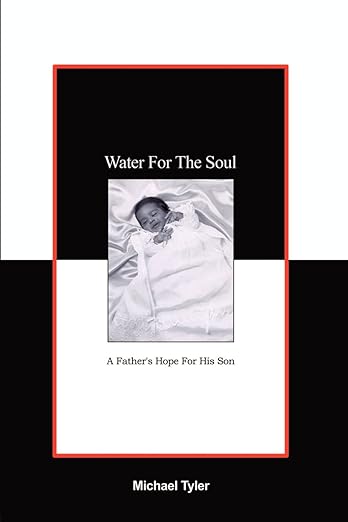 |
Water For The Soul: A Father's Hope for His Son ISBN: 140335698X OCLC: 1st Book Library 2003 |


